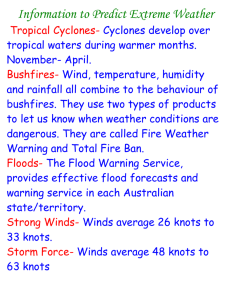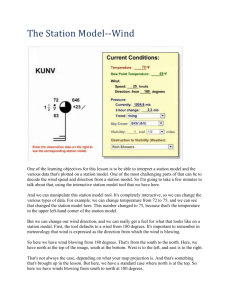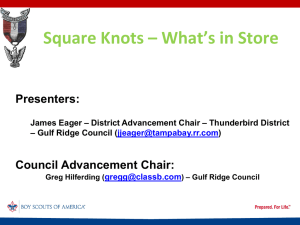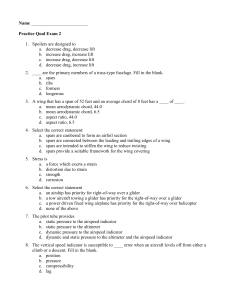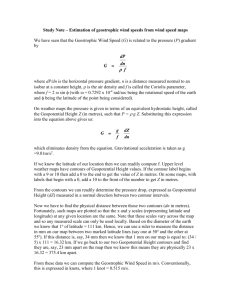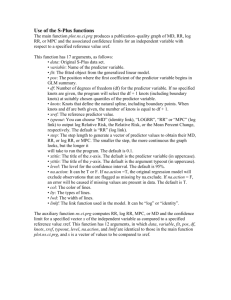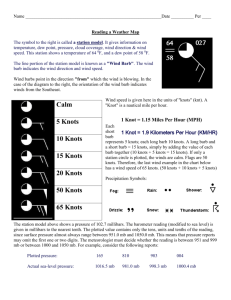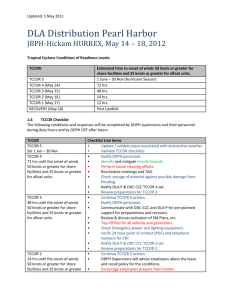Rule-of-thumb formulas for common maneuvers
advertisement
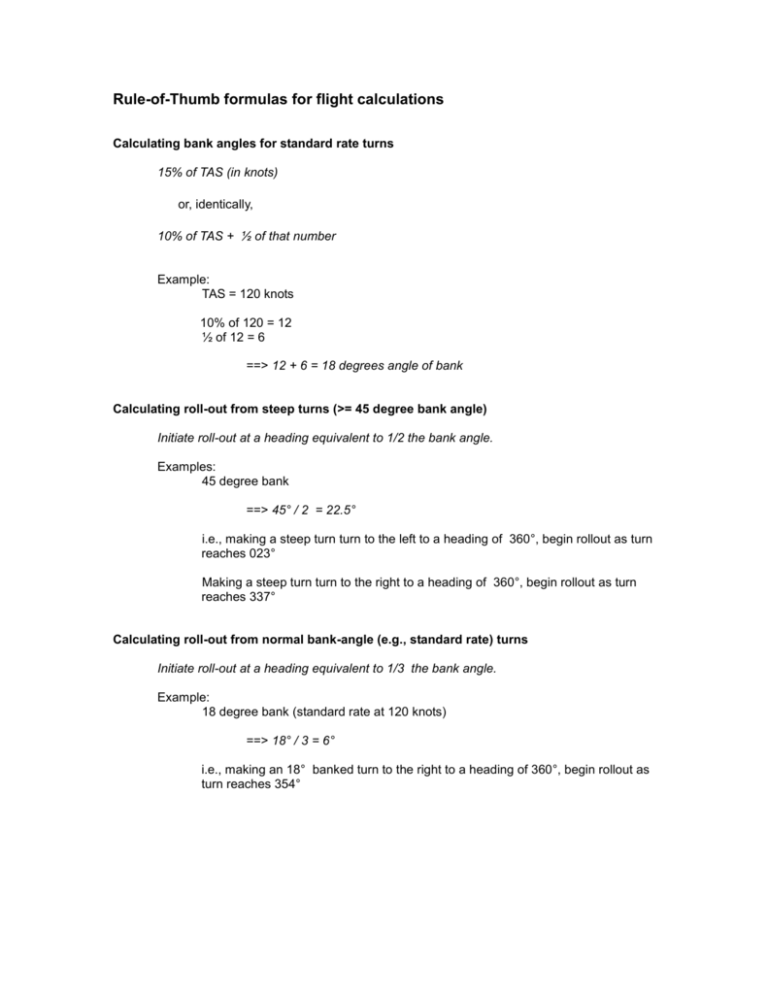
Rule-of-Thumb formulas for flight calculations Calculating bank angles for standard rate turns 15% of TAS (in knots) or, identically, 10% of TAS + ½ of that number Example: TAS = 120 knots 10% of 120 = 12 ½ of 12 = 6 ==> 12 + 6 = 18 degrees angle of bank Calculating roll-out from steep turns (>= 45 degree bank angle) Initiate roll-out at a heading equivalent to 1/2 the bank angle. Examples: 45 degree bank ==> 45° / 2 = 22.5° i.e., making a steep turn turn to the left to a heading of 360°, begin rollout as turn reaches 023° Making a steep turn turn to the right to a heading of 360°, begin rollout as turn reaches 337° Calculating roll-out from normal bank-angle (e.g., standard rate) turns Initiate roll-out at a heading equivalent to 1/3 the bank angle. Example: 18 degree bank (standard rate at 120 knots) ==> 18° / 3 = 6° i.e., making an 18° banked turn to the right to a heading of 360°, begin rollout as turn reaches 354° Calculating level-off from climb or descent 10% of Rate of Climb/Descent Example: Rate of climb: 500 fpm ==> 500 fpm / 10 = 50 feet lead to assigned altitude. Calculating pivotal altitude for pylon-eights square TAS (in knots) / 11.3 Example: True airspeed (e.g., Va): 90 knots ==> (90 * 90) = 8100 / 11.3 = 716.8 feet i.e., enter the pylon-eight at 720 feet in a descending turn upwind N.B., using TAS-squared/10 does not gives a close-enough approximation: ==> (90 * 90) / 10 = 810 feet, 100 feet too high. Calculating lead intercepts (in nautical miles) for DME arcs or any selected course TAS (knots) / 200 Example: TAS = 120 knots ==> 120 / 200 = 0.6 nm lead Initiate a standard rate turn 0.6nm prior to arriving at the arc (at a 90 degree intercept to the arc). For a 45 degree intercept [i.e., ½ of 90 degrees], (e.g., to an airway), use one-half the lead for 90 degrees (initiate at 0.3nm). For a 30 degree intercept (e.g., on a radar vector to an ILS final approach course), use one-third the lead for 90 degrees (initiate at 0.2nm). Calculating Va: (maneuvering speed) at weights less than maximum gross weight (MGW) Square root of (Actual [current] weight / MGW) * published Va (162mph) Example: MGW: 3,600 Published Va: 162 knots Actual [current] weight: 3,400 ==> Square root of (3,400/3,6000) = 0.972 * 162 = 157.44 knots Va at 3,400 = 157 knots
